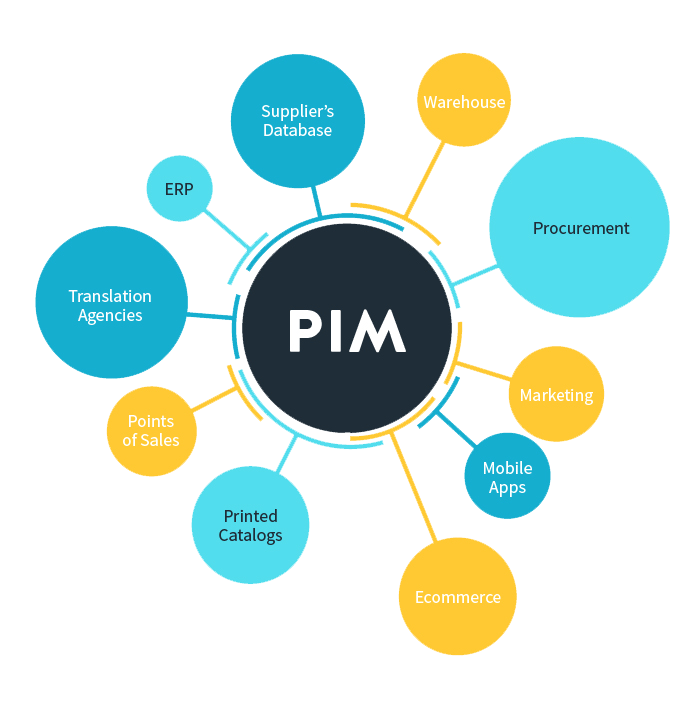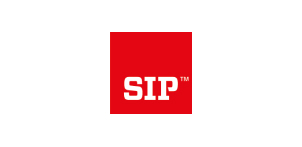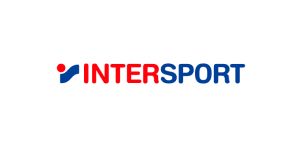
5 Key Advantages of PIM systems
This time, we reveal how you can improve user experience and consequently increase your sales by using an open-source PIM system.

Dealing with the complexity of product data can be hard, time-consuming, unproductive, and expensive.
You can either whine about it or take care of it.
Because there is a solution to this problem, and it’s called PIM (Product Information Management).









In the world of sales and marketing, pressure is relentless, and tasks that are currently in progress should have been completed yesterday.
Simplifying the management of complex and extensive data is a true stress reliever and money bringer for the company and its team.
We can’t talk about the optimization of data-related processes without mentioning PIM.

Product information Management is a software solution that holds up-to date product data, settings, categories and all the rest of information and distributes it to different channels.


With its vast database, PIM enables you to efficiently manage thousands of products with complex hierarchies, variations and attributes.
PIM simplifies the collection and tracking of product information while also improving its quality and consistency.
PIM enables an automated distribution of data through various channels, such as e-commerce pages, mobile apps, printed publications and social networks.
PIM displays relevant data that motivates visitors to purchase your products, thus increasing your revenue while also saving you time.
Don't hasitate and book a PIM CORE demo!
The PIM systems market is booming. Pimcore, a leading PIM system provider in Europe, is utilized daily by more than 100,000 companies, serving millions of users. This doesn’t even account for the additional 200+ PIM solutions developed and in use around the globe.
Don’t just take our word for it. Some of the world’s most renowned corporations, such as LEGO, Audi, IKEA, American Express, Burger King, and Adidas, rely on PIM systems and can’t imagine their work without them. Some of our clients have also made a definitive choice to streamline their data processes once and for all.
But there is a warning.
Once you “go PIM”, you’ll set such high standards for your data management that your only next logical step will be to scale it up.

R&D Manager @ Olma d.o.o.
I am extremely happy with Optiweb’s PIM services. The team is able to 𝐪𝐮𝐢𝐜𝐤𝐥𝐲 𝐮𝐧𝐝𝐞𝐫𝐬𝐭𝐚𝐧𝐝 𝐨𝐮𝐫 𝐧𝐞𝐞𝐝𝐬 and adequately cater to them. Here, the emphasis lies on the word adequately as you sometimes even 𝐬𝐮𝐫𝐩𝐫𝐢𝐬𝐞 𝐮𝐬 𝐰𝐢𝐭𝐡 𝐚 𝐬𝐨𝐥𝐮𝐭𝐢𝐨𝐧 𝐭𝐡𝐚𝐭 𝐬𝐮𝐫𝐩𝐚𝐬𝐬𝐞𝐬 𝐨𝐮𝐫 𝐞𝐱𝐩𝐞𝐜𝐭𝐚𝐭𝐢𝐨𝐧𝐬.
At the same time, I am happy that you’re the ones 𝐩𝐮𝐬𝐡𝐢𝐧𝐠 𝐮𝐬 𝐭𝐨𝐰𝐚𝐫𝐝𝐬 𝐦𝐚𝐤𝐢𝐧𝐠 𝐩𝐫𝐨𝐠𝐫𝐞𝐬𝐬, ensuring we finish the project as quickly as possible and then enjoy the fruits of our labour.
After the implementation of PIM, all our product data will be centralised in one place and all changes will be synchronised across the board (technical documentation, safety lists, stickers…).

Chief of Marketing SIP
As chief of marketing at SIP I’m beyond satisfied with the implementation of the Pimcore solution by Optiweb. Working together with Optiweb’s team was an immensely positive experience and a true showcase of professionalism. Their experts met all our expectations and requirements that were crucial for our business operations.
We were impressed by both Optiweb’s thorough understanding of our company, processes and products as well as by their flexibility and speed. Thanks to their solution, our team can now efficiently manage all the data in several languages and across multiple channels (price lists, catalogues, etc.).
I look forward to future collaborations with Optiweb’s team and can recommend their services to anyone looking for a reliable and innovative partner.
One thing is clear: PIM systems really bring immediate benefits to day-to-day operations. Here’s how.
Data management with PIM systems is more than five times faster than with traditional spreadsheets. While spreadsheets have been immensely helpful in the past, the time has come for a more advanced system to take over the management of complex data sets.
On average, companies operate over five different software systems, and an individual can make more than 5,000 clicks in a single workday. Consolidating data management into a single system reduces the need for repetitive copy-pasting, double-checking, and clicking.
Enriching product information with details, translations, and multimedia becomes a single-click process with PIM systems. Consider the number of online shoppers who abandon their carts or fail to complete a contact form due to insufficient product information. The number is, indeed, countless.
PIM systems streamline the finding, management, and distribution of rich product information for sales and marketing, including images, descriptions, specifications, and pricing. Wondering what that looks like in practice? Check the SIP case study for insights.
With PIM, the accuracy and consistency of product delivery data are ensured. This makes the implementation of new sales channels, e-commerce platforms, marketplaces, and both B2B and B2C segments far less challenging, thereby increasing the sales and the global reach of prosperous businesses.
Building relationships between product data and their application across all sales and marketing channels can be complicated. Unless you let your PIM system show its powers, providing you with all the necessary information for quicker upselling of related products or cross-selling complementary items.
Take over the control and see what PIM would look like within your IT landscape.
Optiweb is a synonym for more than a decade of knowledge and experience. Our journey to becoming a leader among PIM system developers and solution providers in our region began with a simple yet effective step: developing websites and webshops.
Soon enough we were amazed by PIM systems capabilities, especially in solving numerous data integration issues and connections with ERP systems.
Today, our mission is clear: we’re your one-stop-shop for digital transformation, covering data management, enterprise e-commerce, system integration and web development projects.
We are experts at seamlessly integrating PIM solutions into diverse IT landscapes and customizing them to deliver precise personalization.
To date, our projects have centralized, optimized, and enriched millions of pieces of product information across both B2B and B2C sectors.
PIM systems have a strong promise that is delivered by their sophisticated mechanism and structures. Below are some of their key fields of operation and most significant skills.
Intuitive data modeling tools for creating flexible data structures.
Centralized repository for product information.
Versioning and history tracking to monitor data changes.
Bulk data import and export capabilities.
Support for various data formats, including CSV, Excel, XML, and JSON.
Data mapping and transformation options.
Ability to enrich product data with attributes, descriptions, images, and videos.
Multi-language and multi-channel support for localized content.
Asset library for managing images, videos, documents, and other media files.
Asset versioning, metadata management, and automatic file conversion.
Data validation rules to ensure data accuracy and consistency.
Workflow-based data approval and validation processes.
Hierarchical product classification for organizing products.
Dynamic category and taxonomy management.
Support for managing complex product relationships, like bundles and variants.
Cross-selling and up-selling capabilities.
Syndication of product data to various sales channels, websites, and marketplaces.
Real-time data synchronization with e-commerce platforms.
Integration with popular e-commerce platforms like Magento, Shopify, and WooCommerce.
Scalable API support for custom e-commerce integrations.
RESTful API for seamless integration with third-party applications and systems.
Webhooks for event-driven data updates.
Role-based access control to restrict data access based on user roles.
User-friendly interfaces for non-technical users.
Workflow automation for data approval and publishing.
Collaboration features for teams working on product data.
Extensible architecture to build custom functionalities.
Custom data views, forms, and layouts.
Powerful search and filter capabilities to find and sort product data.
Full-text search for quick data retrieval.
Built-in reporting tools and dashboards for data analysis.
Integration with external reporting and analytics solutions.
Multi-language support for global markets.
Currency, date, and language localization options.
Role-based security and permissions.
Compliance with data protection regulations like GDPR.
Scalable architecture to handle large datasets and high traffic.
Performance optimization features.
Integrated content management capabilities for building websites and digital experiences.
Templating engine for creating and managing web content.
Pimcore offers both a free, open-source Community Edition and a
commercial Enterprise Edition with additional features and support.

This time, we reveal how you can improve user experience and consequently increase your sales by using an open-source PIM system.

In this tutorial we’ll show you a way to use the process manager bundle in Pimcore to handle requests from the frontend that you want to run asynchronously in the backend, separately from the frontend request.

Whether you’re running an online store, managing inventory, or handling customer relations, the synchronization of data across platforms can greatly influence efficiency and accuracy. One frequent challenge many face is how to flawlessly integrate and synchronize data between two distinct systems.

The system PIM (Product Information Management) offers an efficient collection, enrichment, management and distribution of a large number of product data. It collects its information from different sources (ERP, Excel sheets, directly from suppliers) and saves them in a centralized base that serves as a product catalog, which can be exported into different channels.
PIM focuses on managing product information, including attributes, descriptions, and media assets. MDM (Master Data Management) deals with broader organizational data, while DAM (Digital Asset Management) is specifically for managing digital media files.
PIM ( Product Information Management), is a software solution designed to centralize, organize, and enrich your product data. It comes in handy if you need to ensure data accuracy, streamline workflows, and manage product information effectively, especially when dealing with a large (number of) catalogs, multiple channels, and global markets.
You can manage a wide range of product data, including product attributes, descriptions, images, videos, prices, specifications, and more. Additionally, PIM can handle digital assets (DAM) for managing media files.
PIM improves efficiency by eliminating data inaccuracies, reducing manual data entry, and enabling faster time-to-market. It also enhances the user experience by providing consistent and high-quality product information across all sales channels.
Yes, PIM supports multilingual and multicurrency capabilities, making it suitable for global businesses and international expansion.
The system offers role-based access control, data verification, and compliance features to meet data protection regulations such as GDPR. Security and privacy of your data are a priority.
Yes, integrations are available with popular e-commerce platforms like Magento, Shopify, WooCommerce, and others. It also offers RESTful APIs for custom integrations.
Both options are available. Open-source is generally free to use, while enterprise versions usually offer additional features and professional support for businesses with more extensive requirements.
The implementation time can vary depending on the complexity of your data and business processes. Smaller projects can take a few weeks, while larger, more complex implementations can take several months.
To start using PIM, you can download the community edition for free from the Pimcore website. If you need additional features and support, contact our sales team for more information.